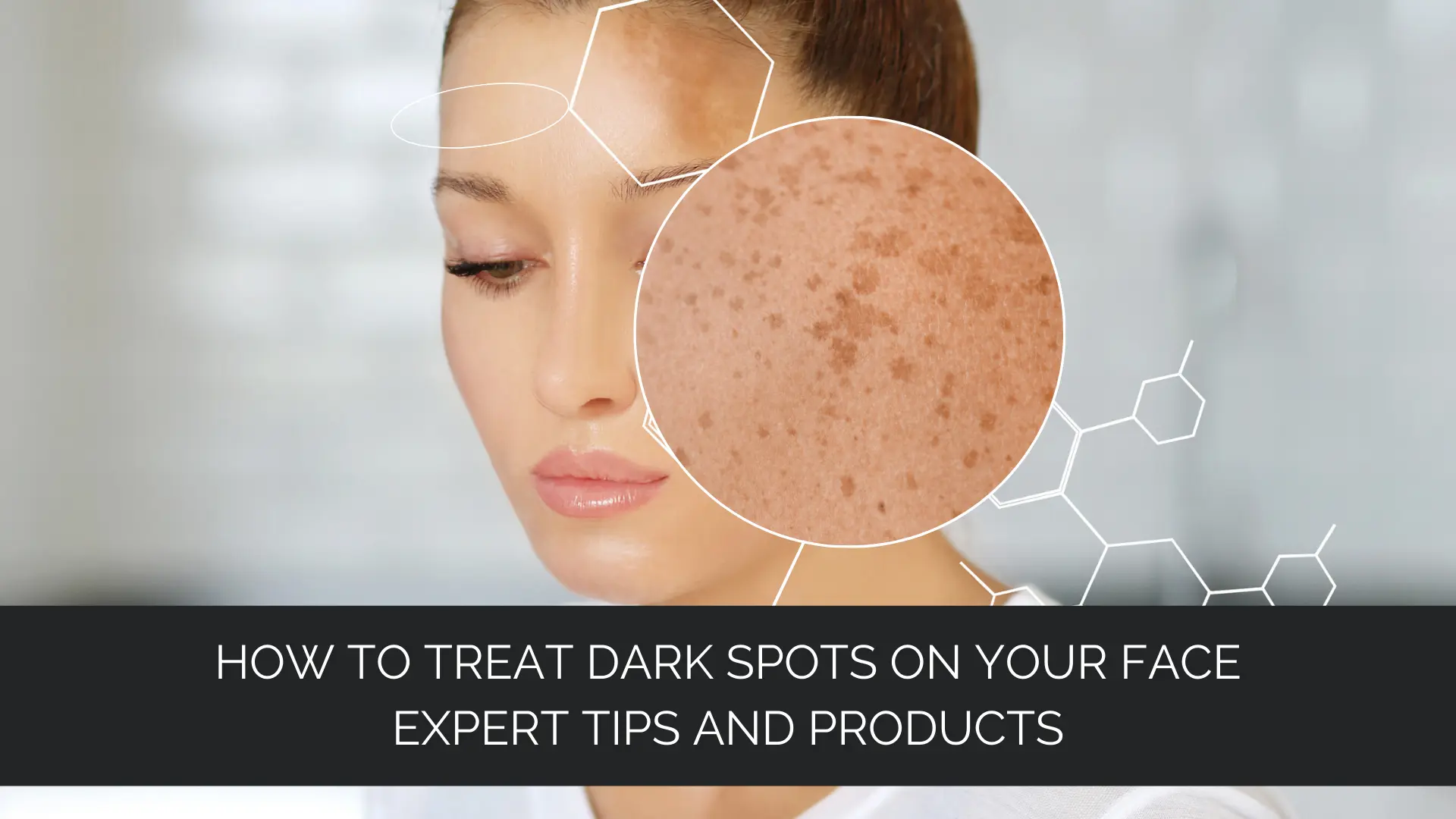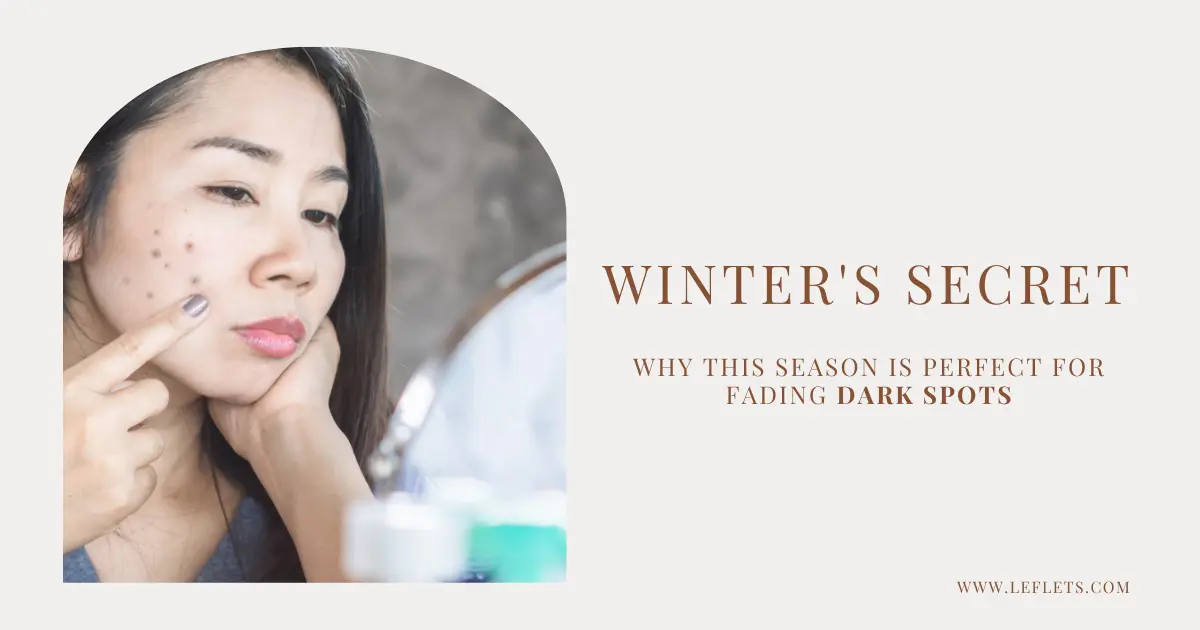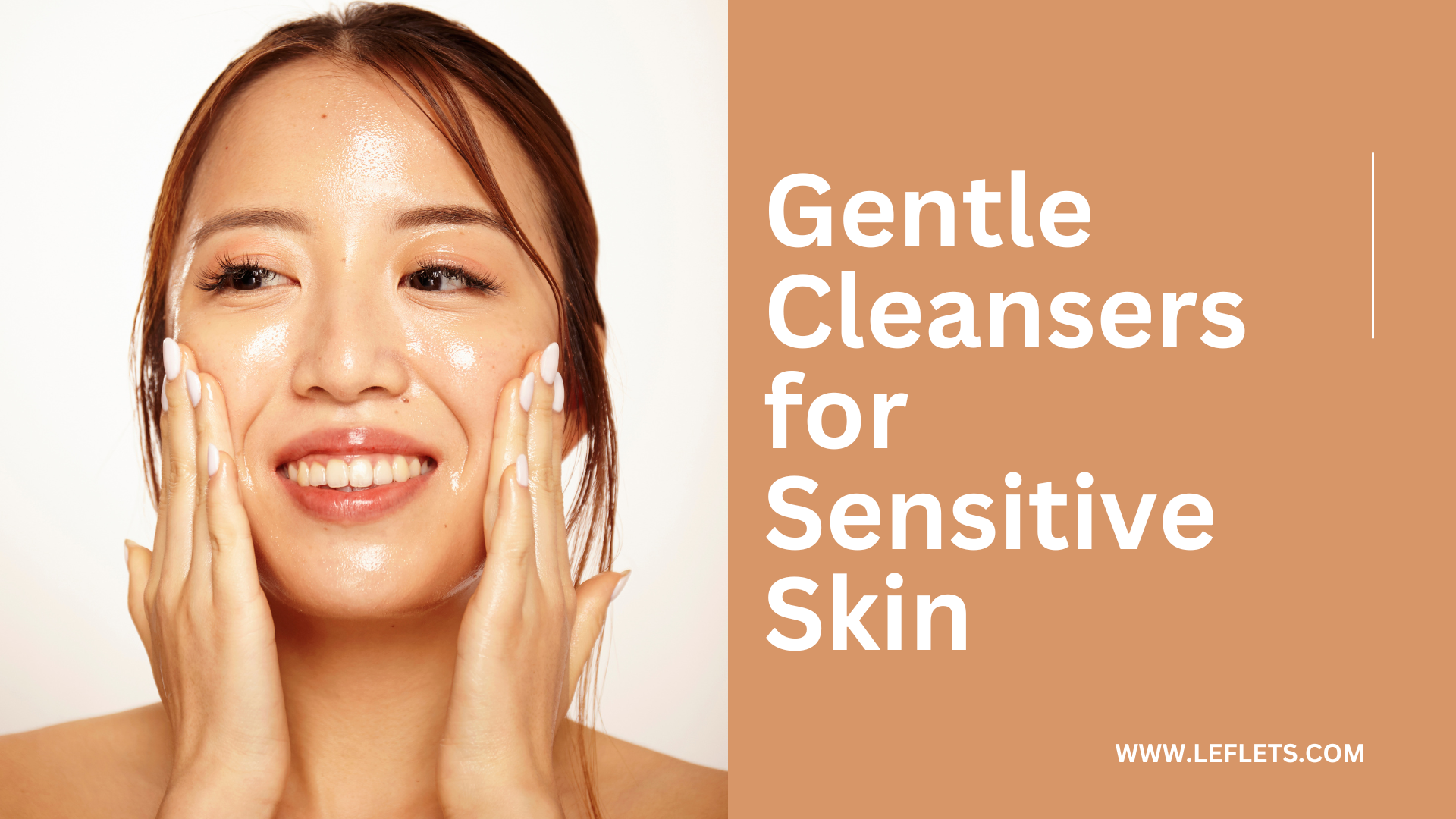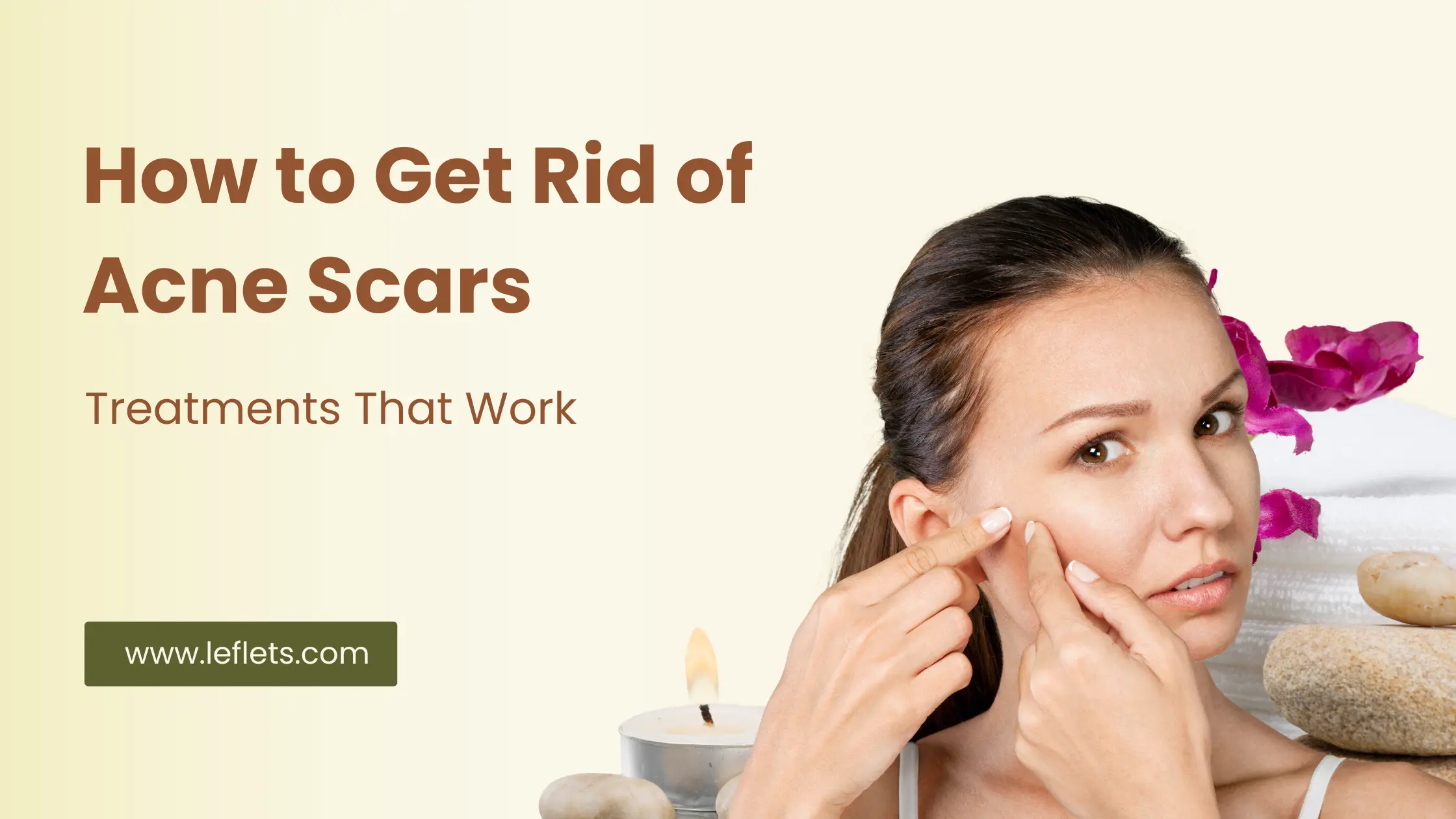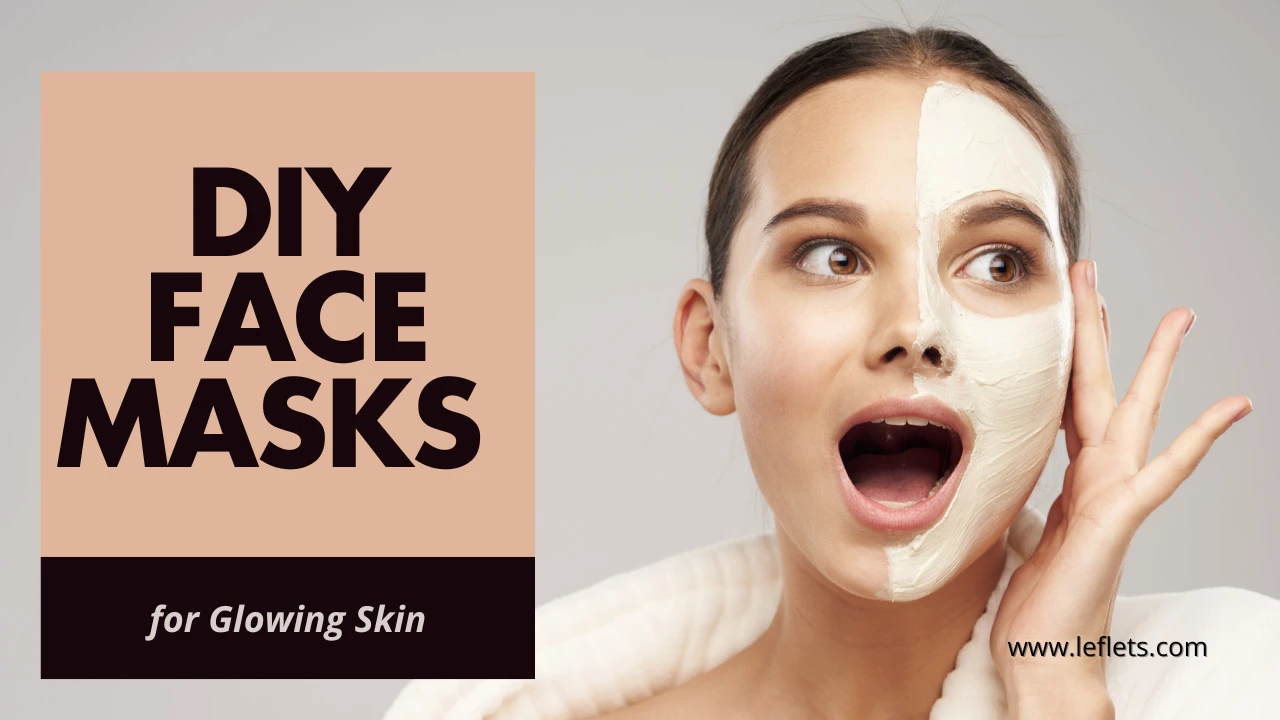Dark spots, also known as hyperpigmentation, can be frustrating and impact your confidence. They are often caused by sun exposure, hormonal changes, acne scars, or aging. Thankfully, with the right approach and products, you can minimize and even eliminate these pesky spots. In this guide, we’ll explore expert tips, effective treatments, and the best products for tackling dark spots.
Understanding Dark Spots
Dark spots occur when certain areas of the skin produce excess melanin, the pigment responsible for your skin’s color. They appear as brown, black, or grayish patches on the skin and vary in size and intensity.
Common Causes of Dark Spots:
- Sun Damage (Solar Lentigines): UV exposure accelerates melanin production.
- Post-Inflammatory Hyperpigmentation (PIH): Results from skin trauma like acne or cuts.
- Melasma: Hormonal changes during pregnancy or due to contraceptive use.
- Aging: Skin tends to develop age spots over time.
Expert Tips for Treating Dark Spots
1. Prioritize Sun Protection
One of the most effective ways to treat and prevent dark spots is by using sunscreen daily. UV rays worsen hyperpigmentation and can reverse your treatment progress.
- Use a broad-spectrum sunscreen with SPF 30 or higher.
- Reapply sunscreen every 2 hours, especially if outdoors.
- Look for physical blockers like zinc oxide or titanium dioxide.
Recommended Product:
- EltaMD UV Clear Broad-Spectrum SPF 46
2. Incorporate Skin Brightening Ingredients
Active ingredients can reduce melanin production and lighten existing spots.
- Vitamin C: A powerful antioxidant that brightens skin and reduces pigmentation.
- Niacinamide: Fades discoloration and strengthens the skin barrier.
- Azelaic Acid: A multitasking ingredient that targets dark spots and inflammation.
- Licorice Extract: A natural skin brightener that soothes and lightens.
Recommended Product:
- SkinCeuticals C E Ferulic Serum
3. Use Chemical Exfoliants
Exfoliating acids remove dead skin cells, speeding up cell turnover and fading dark spots over time.
- Alpha Hydroxy Acids (AHAs): Glycolic acid and lactic acid target pigmentation.
- Beta Hydroxy Acids (BHAs): Salicylic acid penetrates deeper layers of the skin.
How to Use:
- Start with exfoliating 1-2 times per week to avoid irritation.
- Always follow up with moisturizer and sunscreen.
Recommended Product:
- Paula’s Choice Skin Perfecting 2% BHA Liquid Exfoliant
4. Try Retinoids
Retinoids (vitamin A derivatives) are known for their skin-renewing properties. They boost collagen production, unclog pores, and fade dark spots.
- Over-the-counter options: Retinol is milder and ideal for beginners.
- Prescription options: Tretinoin or adapalene is more potent and requires a dermatologist’s guidance.
Recommended Product:
- Differin Gel (Adapalene 0.1%)
5. Consider Professional Treatments
For stubborn dark spots, professional procedures can yield faster results.
- Chemical Peels: Uses high-concentration acids to exfoliate and reveal fresh skin.
- Laser Therapy: Targets melanin to lighten pigmentation.
- Microdermabrasion: Exfoliates the top layer of skin to reduce discoloration.
- Microneedling: Stimulates collagen and improves skin texture.
Consult a dermatologist to determine the best treatment for your skin type and concerns.
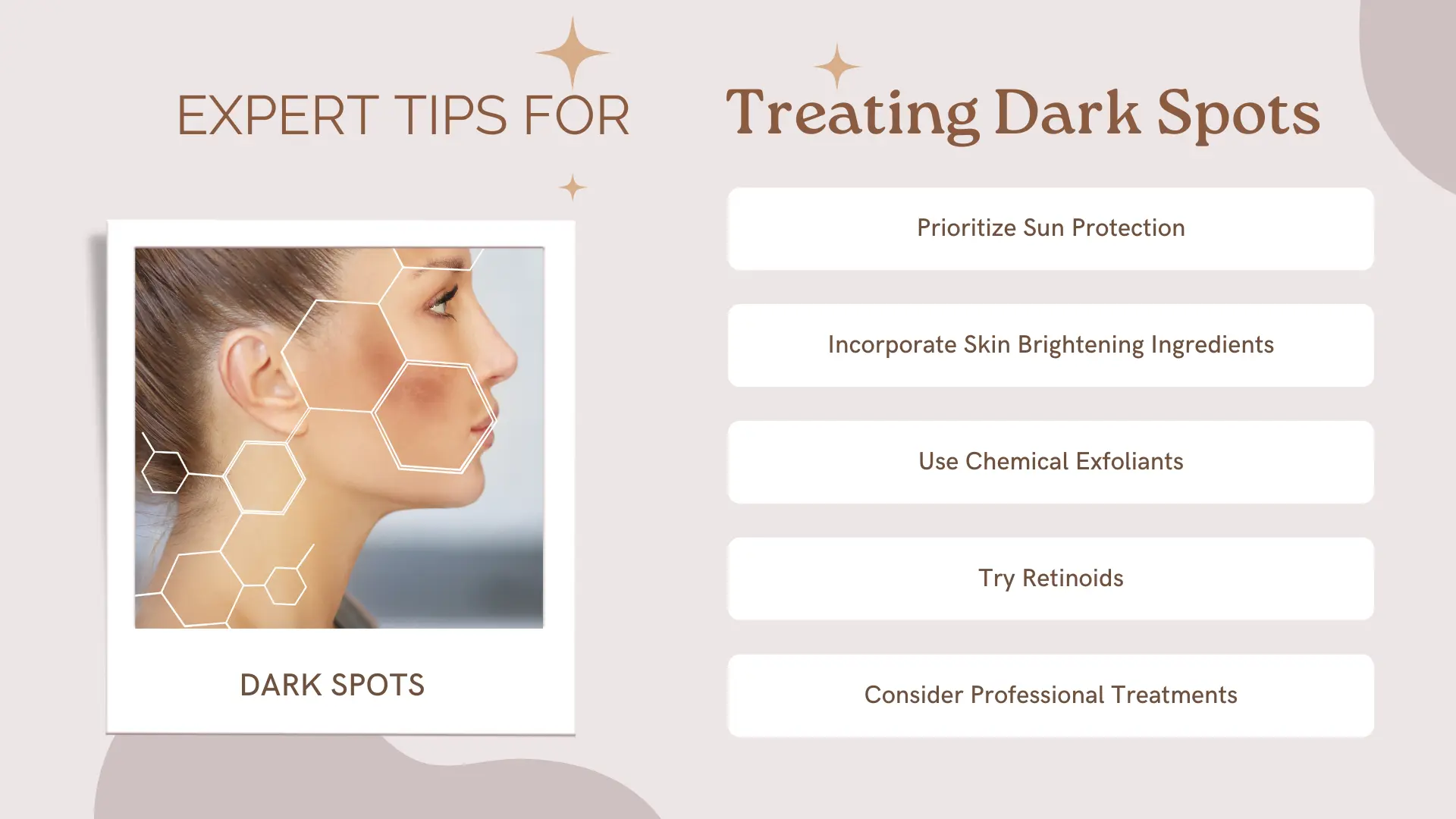
Best Products to Treat Dark Spots
- The Ordinary Alpha Arbutin 2% + HAReduces pigmentation with arbutin, a melanin-inhibiting ingredient.
- Reduces pigmentation with arbutin, a melanin-inhibiting ingredient.
- Murad Rapid Age Spot and Pigment Lightening SerumFeatures hydroquinone, a gold-standard ingredient for spot removal.
- Features hydroquinone, a gold-standard ingredient for spot removal.
- La Roche-Posay Mela-D Pigment Control Glycolic Acid SerumCombines glycolic acid and kojic acid for visible results.
- Combines glycolic acid and kojic acid for visible results.
- Kiehl’s Clearly Corrective Dark Spot SolutionContains activated C and white birch extract for a brighter complexion.
- Contains activated C and white birch extract for a brighter complexion.
- Drunk Elephant C-Firma Fresh Day SerumA potent vitamin C formula for overall radiance and spot reduction.
- A potent vitamin C formula for overall radiance and spot reduction.
Lifestyle Changes to Support Skin Health
1. Hydrate Inside and Out
Drinking enough water and using a hydrating moisturizer ensures your skin remains supple and heals effectively.
2. Follow a Healthy Diet
Consume foods rich in antioxidants, like berries, leafy greens, and nuts, to combat oxidative stress that worsens pigmentation.
3. Avoid Picking at Spots
Touching or picking at spots can worsen PIH and lead to scarring.
Preventing Dark Spots: Key Habits
- Wear Sunscreen DailyUV rays are the biggest culprits behind pigmentation.
- Double CleanseThoroughly remove makeup and impurities to keep pores clear.
- Invest in Quality SkincareStick to products that suit your skin type and avoid irritating ingredients.
When to See a Dermatologist
If your dark spots don’t respond to over-the-counter products or worsen despite treatment, consult a dermatologist. Persistent pigmentation may require prescription-strength treatments or a medical diagnosis to rule out underlying conditions.
The Emotional Impact of Dark Spots
Hyperpigmentation can affect your self-esteem, but it’s essential to remember that your skin is a living organ that changes over time. Be patient, consistent with your routine, and kind to yourself during the process.
Find more Skin Care Tips on - www.leflets.com
